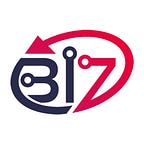What is a search engine results page (SERP)?
The page that a search engine returns after a client present a search inquiry. Notwithstanding natural search results, search engine results pages (SERPs) normally incorporate paid search and pay-per-click (PPC) advertisements.
Because of search engine improvement (SEO), the positioning situation on a SERP can be profoundly cutthroat since clients are bound to tap on results at the highest point of the page. With the dispatch of diagram markup, SERPs are turning out to be significantly more intricate to attempt to expect client needs.
SERP
A search engine results page, or SERP, is the page you see subsequent to entering an inquiry into Google, Yahoo, or some other search engine. Each search engine’s SERP configuration is unique, however since Google is the most famous holding more than 80% of the portion of the overall industry, we’ll center around their elements and calculations.
Contingent upon the inquiry, this page might contain a blend of provisions, including recordings, pictures, news stories, items, customary sites, or even explicit answers.
Sales in the SERPs
Contingent upon the business or the subjects, Google is developing into a business facilitator, not simply a search engine. It will likely interpose itself into the business interaction and keep the searcher on Google properties until the last checkout.
Types of search queries
The SERP highlights that presentation after a search relies upon the sort of search inquiry entered. Search queries regularly can be categorized as 1 of 3 classes:
Transactional
Individuals make conditional queries when they’re considering purchasing something, similar to a specific item or a thing from a general class. Value-based queries have the most ridiculous income potential, so catchphrases will in general have a lot of offers for pay-per-click spots. That implies that notwithstanding the natural search results for their value-based queries, individuals will see important paid results, as well.
Informational
An individual makes an enlightening inquiry when they need to learn something, similar to foundation realities on a point or how to play out a specific assignment. The searcher isn’t normally hoping to make a buy, yet the right substance regularly drives them to a specific brand. That is the reason to make a pertinent substance that obliges the needs, needs, and interests of your intended interest group.
Adding sight and sound substance to your site can be an especially viable approach to create traffic from educational queries.
Navigational
Navigational queries happen when somebody is searching for a specific site yet doesn’t type the site’s full URL. Except if the searcher is explicitly searching for you, it tends to be hard to arrive at the main page of these results. To exploit navigational queries for your site, consider purchasing promotions for the watchwords you need to rank for — like the name of your business, for example.
Organic search results
By definition, natural results are truly anything in the SERP that is certainly not paid notice. Nonetheless, when most SEOs allude to natural search results, they mean the rundown of 6–10 blue connections.
After the January 2020 center update, the versatile and work area SERP looks basically the same. Every natural posting is presently contained a Favicon followed by a breadcrumb trail. The page title shows up on the following line, and afterward the meta depiction underneath that. On the off chance that your posting has site interfaces, those will show up underneath the meta portrayal.
Paid search results
At long last, we have the old staples: paid results.
Google places paid promotions at the highest point of the search results page, normally showing 4 advertisements on a PC and 3 on a portable program.
There are normally multiple organizations competing for a similar search catchphrase, notwithstanding, so Google should likewise figure out which promotions land on the primary page of results.
To settle on that choice, Google thinks about a few factors: the bid sum, the nature of the page people are taken to when they click your promotion, the nature of the actual advertisement, and the importance to the search.
In the event that Google infers that your site is preferable and more applicable over the opposition, you’ll show up on the principal page.
These incorporate PPC promotions and PLAs (Product Listing Ads — otherwise called Google Shopping takes care of).
Google Ads can show up above or beneath results, yet they’ll just permit up to four advertisements above on account of PPC promotions (PLA merry-go-rounds can contain more).
